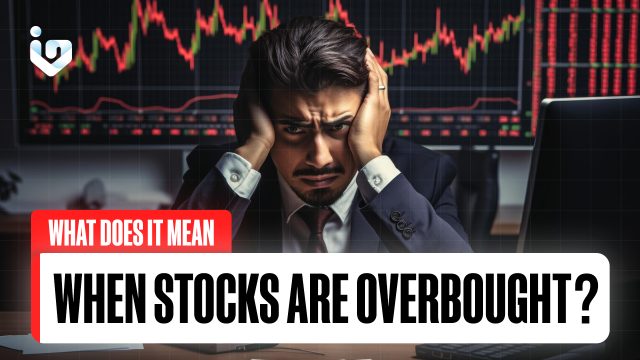In the bustling world of stock trading, the term ‘overbought’ rings loud in the halls of the stock exchange. It’s a signal, a warning bell that echoes in the minds of traders and analysts alike. But what does it truly mean when stocks are overbought? And how does this relate to the art of mastering one’s craft?
The Essence of Overbought Stocks
To be overbought is to be in demand. It’s when a stock’s price climbs so high, so fast, that it outpaces its intrinsic value. The market’s enthusiasm has overshot, and the stock is now perched precariously at a peak. It’s like a climber who has ascended too quickly, the altitude overwhelming, the air thin.
Traders watch for overbought conditions as they would a storm on the horizon. They use tools like the Relative Strength Index (RSI) to measure the velocity of a stock’s price movements. An RSI above 70 suggests that a stock may be overbought. It’s a red flag, signaling that the stock’s price might soon fall back to earth.
Mastery and the Market
There’s a parallel here with the pursuit of mastery in any field. Mastery is not achieved overnight. It’s the result of consistent, dedicated effort. It’s the gradual climb, the steady accumulation of skill and knowledge. Just as a stock must not rise too fast, a craftsman must not rush the journey to expertise.
The market rewards those who understand the dynamics of overbought and oversold conditions. Investors who focus on the long-term, who study the fundamentals and invest in their continuous learning, often see the greatest returns. They know that true value is not found in the frenzied peaks but in the solid ground of sustainable growth.
The Rewards of Patience
Patience is the companion of mastery. It’s the ability to wait for the right moment, to resist the allure of quick gains. In the stock market, this means waiting for overbought conditions to ease, for prices to realign with value. For the craftsman, it means honing one’s skills day by day, project by project.
The rewards for such patience can be substantial. For the investor, it might mean capitalizing on a market correction. For the craftsman, it could be the recognition of their expertise, the demand for their work, and the financial success that follows.
Conclusion
When stocks are overbought, it’s a reminder that what goes up must come down. It’s a lesson in the dangers of moving too fast, of valuing hype over substance. For the investor and the craftsman alike, it’s a call to focus on the fundamentals, to build slowly, and to trust in the process.
In the end, whether in the stock market or in one’s craft, the greatest rewards come not from chasing the highs but from the deep satisfaction of mastery achieved over time. It’s a path that requires patience, dedication, and a keen eye for the true value of things.

